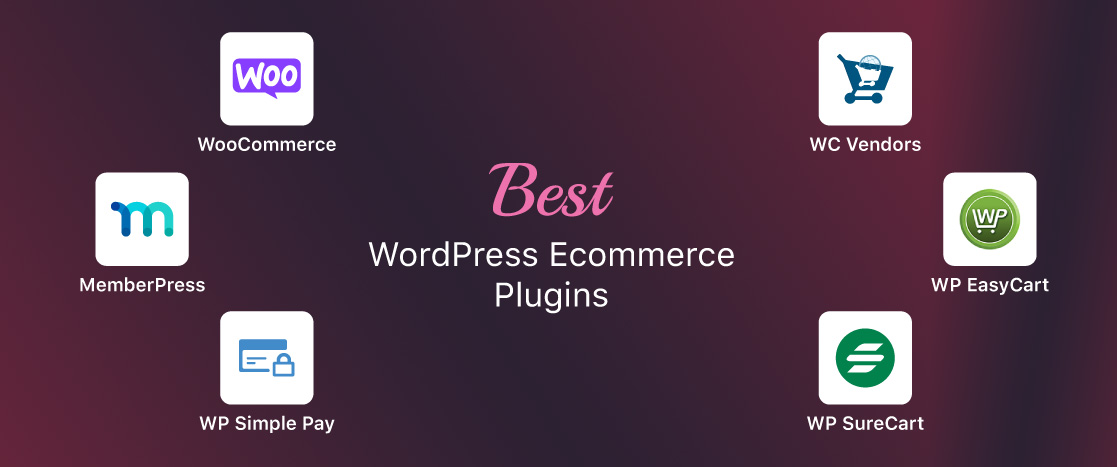
Create an E-commerce Privacy Policy that Protects Your Customer and Brand
- Crafting an Effective Ecommerce Privacy Policy
- Best Practices for Writing a Clear and Compliant Privacy Policy
- Overview of Essential Legal Pages
- Legal Agreements Across Different Regions
- The Impact of Legal Pages on Customer Trust and Business Success
- Why do you need ecommerce legal pages?
- Tips for Small Businesses
- Conclusion
- FAQs
Information security is becoming a major problem; some have even declared it a violation of human rights. Most nations have implemented consumer protection laws that govern information gathering, storage, and use.
Companies are responsible for preventing infractions. Because e-commerce is a digital enterprise, privacy policies are fundamental.
The collection, storage, usage, and sharing of data should all be made explicit in e-commerce privacy rules. Phone numbers, stored credit card information, past purchases, and ad interactions are all included in this.
75% of consumers worldwide will be subject to privacy laws. To comply with regulatory obligations and safeguard the data of clients, staff members, and partners, e-commerce websites must have policies and procedures in place.

- Crafting an Effective Ecommerce Privacy Policy
- Best Practices for Writing a Clear and Compliant Privacy Policy
- Overview of Essential Legal Pages
- Legal Agreements Across Different Regions
- The Impact of Legal Pages on Customer Trust and Business Success
- Why do you need ecommerce legal pages?
- Tips for Small Businesses
- Conclusion
- FAQs
What is an Ecommerce Privacy Policy?
Effective ecommerce privacy policies and legal pages are essential for establishing client confidence. You may establish a sense of trust and safety for your customers by being open about how you handle their information and what they will be receiving from you. Consumers are more willing to make purchases and return to the shop if they believe their personal information is secure.
This policy often addresses the types of data gathered (e.g., names, addresses, payment information), how the information is used (e.g., for advertising, order processing), and your company’s safeguards to protect this data. It also provides details on data sharing with other parties and consumer information rights.
Why is it Necessary to Have an Ecommerce Privacy Policy?
The importance of an Ecommerce privacy policy cannot be overstated. Here’s why:
- Legal Requirements and Regulations: Laws like the General Data Protection Regulation (GDPR) in the European Union and the California Consumer Privacy Act (CCPA) in the United States mandate that businesses provide clear and comprehensive privacy policies. Non-compliance can result in hefty fines and legal action.
- Protecting Customer Data and Business Interests: A well-crafted privacy policy protects your customers by ensuring their data is handled securely. It also safeguards your business from potential legal disputes by clearly outlining your data practices.
- Building Trust with Customers: Customers are more likely to do business with companies that are transparent about their data practices. A clear and accessible privacy policy helps build trust and encourages customer loyalty.
Consequences of Not Having a Privacy Policy
Failing to provide a proper Ecommerce privacy policy can lead to severe consequences:
- Legal Implications: Non-compliance with data protection laws can result in fines, legal action, and damage to your business’s reputation.
- Loss of Customer Trust: Customers who feel their data is not secure or that a business is not transparent about its practices are likely to take their business elsewhere.
- Business Risks: Without a privacy policy, your business is vulnerable to lawsuits and disputes, which can be costly and time-consuming.
Crafting an Effective Ecommerce Privacy Policy
Creating an effective Ecommerce privacy policy involves including several key elements:
- Information Collected: Clearly state the types of information your website collects from users, such as personal identification details, payment information, and browsing data.
- How Information is Used: Explain how the collected data will be used, whether for processing orders, marketing purposes, or improving customer experience.
- Data Storage and Security Measures: Detail the security measures your business takes to protect customer data, such as encryption and secure servers.
- Customer Rights Regarding Their Data: Inform customers of their rights, such as accessing their data, requesting corrections, or opting out of data collection.
- Third-Party Sharing Policies: Disclose any instances where customer data is shared with third parties, such as payment processors or marketing partners.
Best Practices for Writing a Clear and Compliant Privacy Policy
When drafting your Ecommerce privacy policy, keep the following best practices in mind:
- Use Simple, Clear Language: Avoid legal jargon and write in a language that your customers can easily understand. The goal is to be transparent and informative.
- Keep the Policy Updated: Regularly review and update your privacy policy to reflect changes in your business practices or legal requirements.
- Transparency and Accessibility for Customers: Make your privacy policy easily accessible on your website, typically through a link in the footer, and ensure it’s available during the checkout process.
Overview of Essential Legal Pages
In addition to a robust Ecommerce privacy policy, your website should include several other critical legal pages to ensure comprehensive protection for both your customers and your business.
Terms and Conditions
Terms and Conditions outline the rules and guidelines that govern the use of your website and services. Key components include:
- User Responsibilities: What is expected from users when they access your website or make a purchase.
- Limitations of Liability: Statements that limit your business’s liability in case of errors, inaccuracies, or issues with your products or services.
- Governing Law: The legal jurisdiction under which your terms and conditions are governed.
Having a well-defined terms and conditions page helps protect your business from legal disputes and clarifies the relationship between you and your customers.
Return and Refund Policy
A clear and concise Ecommerce return policy is crucial for managing customer expectations and reducing the likelihood of disputes. Key elements to include are:
- Timeframe for Returns: Specify the period within which customers can return products.
- Conditions for Returns: Outline any conditions that must be met for a return to be accepted (e.g., products must be unused and in original packaging).
- Refund Process: Explain how refunds are processed, including the timeframe and the method of payment.
A transparent Ecommerce return policy enhances customer satisfaction and can lead to repeat business.
Disclaimer
A disclaimer page typically includes statements that protect your business from certain liabilities. Common inclusions are:
- Liability Disclaimers: Statements that limit your liability for any errors, omissions, or inaccuracies on your website.
- Warranty Disclaimers: Statements that clarify that your business does not guarantee the accuracy or completeness of the content on your website.
Disclaimers are essential for managing customer expectations and protecting your business legally.
Cookie Policy
A cookie policy explains how your website uses cookies and similar technologies to collect information from users. This policy should cover:
- Types of Cookies Used: Describe the types of cookies your website uses (e.g., session cookies, persistent cookies).
- Purpose of Cookies: Explain why you use cookies, such as for tracking user behavior or personalizing content.
- User Consent: Inform users about how they can manage their cookie preferences and provide consent.
A comprehensive cookie policy is particularly important for complying with regulations like the GDPR.

Legal Agreements Across Different Regions
E-commerce privacy policies must cover legal agreements specific to regional rules, To safeguard clients and foster international confidence, these policies should address data collection, storage, usage, and user rights while guaranteeing adherence to regional privacy regulations.
Global Data Protection Regulations
When creating an ecommerce privacy policy and other legal pages, it’s crucial to consider the various data protection regulations that apply to your business. Some key regulations include:
- General Data Protection Regulation (GDPR): Applicable to businesses operating in the European Union or dealing with EU citizens, GDPR requires businesses to be transparent about data collection and provides individuals with rights over their data.
- California Consumer Privacy Act (CCPA): Applicable to businesses in California or those that handle California residents’ data, CCPA mandates that businesses disclose what data they collect and how it’s used.
Ensuring that your privacy policy and legal pages comply with these regulations is essential for avoiding legal penalties.
Staying Updated with Changing Laws
Protection of data rules are continually evolving, thus your Ecommerce privacy policy and other legal pages should be reviewed and updated frequently. This includes remaining current on new rules and industry standards. Consider using legal services or tools to keep your policies up to speed with current needs.
The Impact of Legal Pages on Customer Trust and Business Success
Legal pages that clearly and respectfully follow rules, such as terms of service and privacy policies, increase consumer trust. They also build reputations by assuring people about fair processes and data security. Clear, well-written legal papers help shield companies from liability, which fosters client loyalty and long-term success.
Building Customer Trust
A well-crafted Ecommerce privacy policy and other legal pages play a significant role in building trust with your customers. By being transparent about how you handle their data and what they can expect from your business, you create a sense of security and reliability. Customers are more likely to make purchases and return to your store when they know their information is in safe hands.
Avoiding Legal Conflicts
Legal issues can be expensive and time-consuming, but having clear and complete legal documents can help you avoid them. By defining your company’s policies and consumers’ rights, you limit the possibility of confusion and even conflict. A clearly defined Ecommerce return policy, for example, can help to avoid disagreements over returns and refunds, whereas a clear terms and conditions page can protect your company from legal action.
Why do you need ecommerce legal pages?
At this stage, it’s obvious that ecommerce legal pages are essential. So, if your online store is designed to capture visitor information. You must display a privacy policy, terms and conditions, cookie policy, and returns and refunds policy.
Having said that, here are some more reasons why an ecommerce website’s privacy policy is important.
Global Laws
Even if you have only installed a contact form, your website is required to comply with several federal and state privacy rules. These rules address an extensive variety of privacy-related issues, and it is critical that the website you operate adheres to them.
Saves Money
You should not be spending your company’s income by being hit with a large fee or fine simply because you failed to comply with the law.
In 2012, the California Attorney General’s Office used CalOPPA to collect private data from mobile applications on tablets and smartphones. Authorities discovered several app providers breaking the law and ordered them for a month to either comply or pay a penalty of up to $2,500 for each download of their app.
Establishes Credibility and Trust
Regarding an increase in company data leaks and identity thefts, internet users are more concerned about protecting their own private data. As a result, knowledgeable customers expect you to safeguard their data.
This builds confidence and trustworthiness among users, allowing them to commit more to you without regret.
Third-Party Requirements
If you’ve linked third-party organizations into your eCommerce store, such as Google and Amazon, you must show a privacy policy in order to use, distribute, and promote on their respective websites. Several treaties, global laws, and agreements exist to manage transfer of information and privacy standards between states.
If you do comply with this law, you risk being penalized. SnapChat, Google, Delta Airlines, and many other large organizations have suffered as a result of failing to post clear privacy regulations over time.
Tips for Small Businesses
If you’re a small business owner, creating legal pages may seem daunting. However, there are affordable tools and resources available, such as ecommerce privacy policy templates and online generators.
These tools can help you create a standard ecommerce privacy policy that meets legal requirements. For more complex needs, consider consulting a legal professional to ensure your policies are comprehensive and compliant.
Conclusion
To summarize, an ecommerce privacy policy and other legal papers are essential elements of running a profitable and legally authorized ecommerce store. They safeguard both your customers and your company by promoting openness, fostering trust, and reducing legal risks.
As your ecommerce firm grows, make it a priority to create and maintain extensive legal documentation. This not only ensures compliance with rules, but also fosters long-term customer relationships and protects your firm from potential challenges. Don’t wait—make sure your Ecommerce privacy policy and legal pages are up to date and easily accessible on the website today.
FAQs
What does it cost to have a privacy policy created?
In general, a privacy policy is a legal document that describes how a company gathers, organizes, and applies user information while also helping users with their privacy rights when communicating via the website or service.
Does my website need a privacy policy?
There must be a privacy policy on every website. Companies must give customers a privacy statement at the time or before to collecting personal data.
What is the difference between privacy policy and terms and conditions?
Terms and Conditions vs. Privacy Policies. The rights of customers are kept secure by a privacy policy, whilst the rights of your website or application are protected by terms and conditions.





